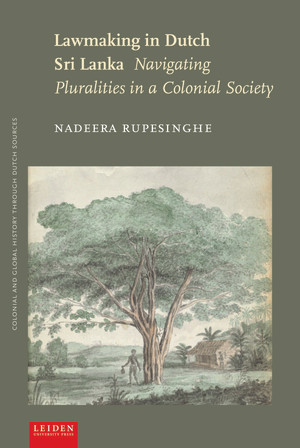" Future scholars of eighteenth-century Sri Lankan law and social history will want to make this one of the first books they read. Rupesinghe’s account of litigation in the Landraad provides a goldmine of information about that court’s remarkable archive, its personnel and procedures, and the often humble people who asked it to settle their disputes. She uses this archive to reconstruct a rich social world, and along the way, gives us wonderful stories about landholding, social and family relations, and so much more. – Paul Halliday, University of Virginia This book tackles an important and neglected field of interest not only to scholars of Sri Lanka but also to legal historians of the early modern world and to those interested in empires in Asia. With gripping detail and dense attention to individuals and places, Rupesinghe recovers how local communities faced, moulded and changed the law in Galle, in southern Lanka. The situational judging and the specific circumstances of land, family and religion which framed this encounter between subjects and the law is handled with great sensitivity and nuance. A mature piece of archival work which will become a cornerstone in the growing literature on Dutch Sri Lanka. – Sujit Sivasundaram, University of Cambridge This is a dense and fine grained book that casts new light on the workings of society in the maritime province of Sri Lanka under VOC rule. From personal snippets, Nadeera Rupesinghe's work gestures toward a new understanding of the interfaces between law-making and identity formation but also of the spaces of local agency, the ruses of the people to subvert a dominant structure. She has written a pioneering work in the field of Sri Lankan Dutch history. – Nira Wickramasinghe, Leiden University "

